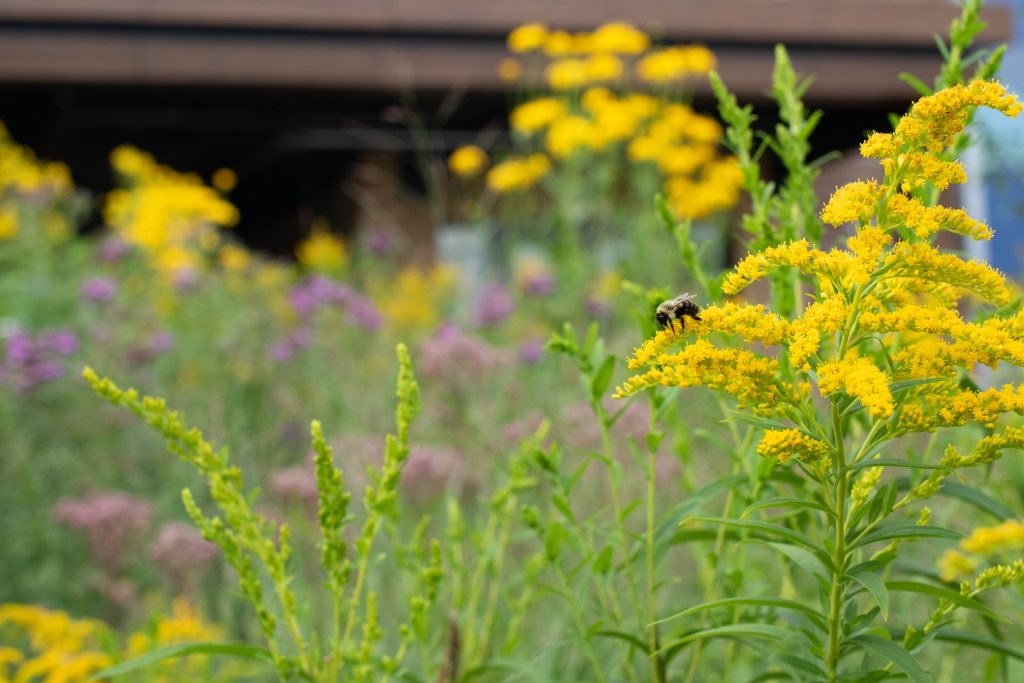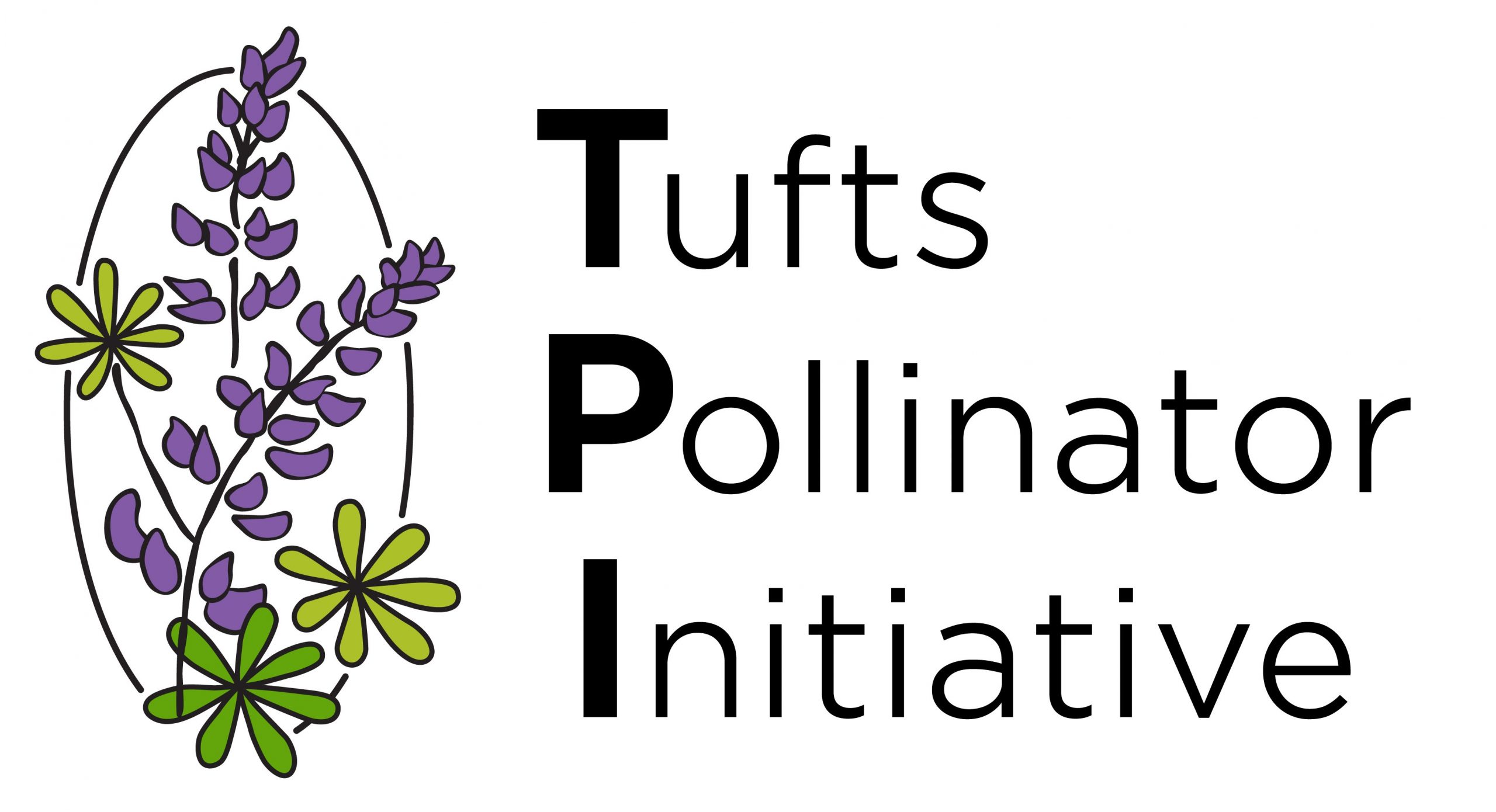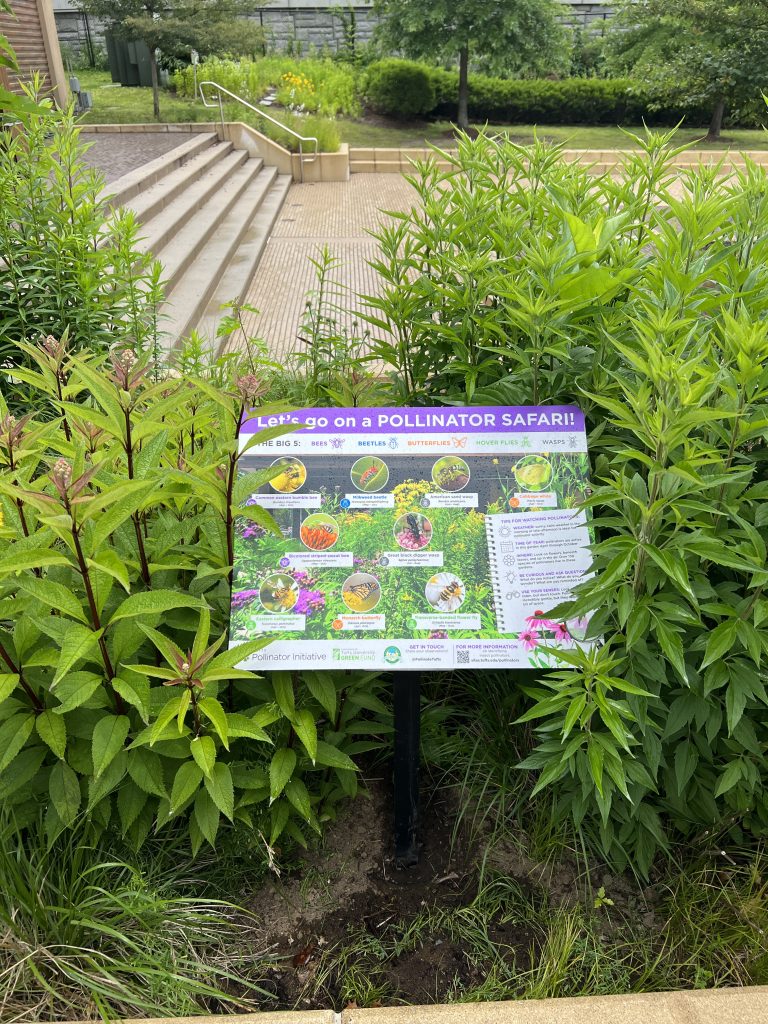Tufts Pollinator Initiative strives to support urban pollinators through habitat creation and community education.
Insect pollinators play key ecological, economic, and cultural roles: they pollinate crops and wild plants, provide pest control services, feed vertebrates like bats and birds, and form an important cultural link between humans and nature. Yet, insect pollinators have experienced widespread declines in recent years. The culprit? The interacting effects of habitat loss, pesticides, climate change, exotic species, and disease.
Cities have emerged as one possible refuge for pollinators. Not only do cities contain many kinds of habitat–gardens, parks, green roofs, restoration areas–but also interested and invested community members. In spring 2019, with support from the Tufts Green Fund, we founded the Tufts Pollinator Initiative (TPI) to conserve insect pollinators in urban Medford and Somerville, Massachusetts.
We plant and maintain pollinator gardens. Collectively, our five gardens support over 115 species of pollinators throughout their life cycles. We prioritize plants with diverse flower size, shape, and bloom times to support as many pollinators as possible, demonstrating that pollinator gardens can be both attractive and ecologically relevant. Over past summers, we have surveyed gardens on and off campus to document which pollinators live around us. Our current efforts are focused on maintaining these spaces, ensuring the gardens are cared for in a way that prioritizes pollinator use.

We educate community members. Our gardens bring nature closer to home and contain interpretive signage, giving as many community members as possible the opportunity to observe and interact with insect pollinators. For those more acutely interested in pollinators, we offer resources on our website, including informational handouts. We want to give community members the knowledge, capacity, and resources to support pollinators on their own. Starting fall of 2024, undergraduates in TPI will be focusing more on the immediate Tufts community, providing education about our campus gardens and hosting informational tables at Tufts events. Community members outside of the university can expect free native seeds as our Little Free Seed Library continues to get restocked.


